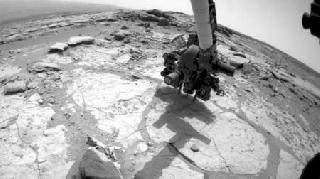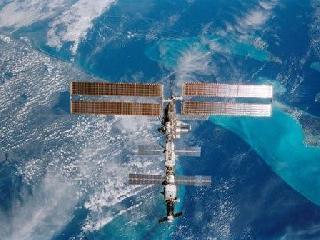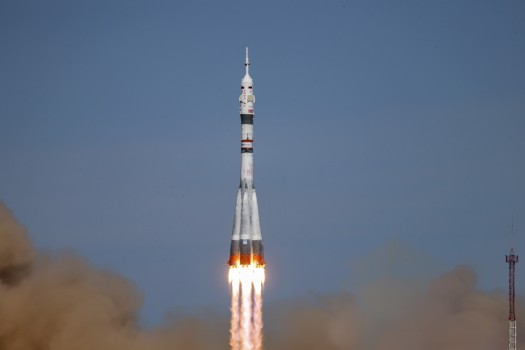
An image from the Curiosity rover's Front Hazard-Avoidance Camera shows the rover drilling into its second rock target,
WASHINGTON (PTI): For the first time, scientists have successfully determined the age of a Martian rock - with experiments performed on Mars.
Although researchers have determined the ages of rocks from other planetary bodies, the actual experiments - like analysing meteorites and moon rocks - have always been done on Earth.
The work, led by geochemist Ken Farley of the California Institute of Technology (Caltech), could not only help in understanding the geologic history of Mars but also aid in the search for evidence of ancient life on the planet.
Findings from the first such experiment on the Red Planet provide the first age determinations performed on another planet.
Farley and his colleagues determined the age of the rock to be about 3.86 to 4.56 billion years old.
The results come from the analysis of data and observations obtained during Curiosity's exploration at Yellowknife Bay - an expanse of bare bedrock in Gale Crater about 500 meters from the rover's landing site.
The smooth floor of Yellowknife Bay is made up of a fine-grained sedimentary rock, or mud-stone, that researchers think was deposited on the bed of an ancient Martian lake.
In March, Curiosity drilled holes into the mud-stone and collected powdered rock samples from two locations about three meters apart.
Once the rock samples were drilled, Curiosity's robotic arm delivered the rock powder to the Sample Analysis on Mars (SAM) instrument, where it was used for a variety of chemical analyses, including rock dating-techniques.
One technique, potassium-argon dating, determines the age of a rock sample by measuring how much argon gas it contains.
Although the potassium-argon method has been used to date rocks on Earth for many decades, these types of measurements require sophisticated lab equipment that could not easily be transported and used on another planet.
Farley had the idea of performing the experiment on Mars using the SAM instrument. There, the sample was heated to temperatures high enough that the gasses within the rock were released and could be analysed by an on-board mass spectrometer.
"In one sense, this is an utterly unsurprising result - it's the number that everybody expected," Farley said.
The study was published in the journal Science Express.
 Previous Article
Previous Article Next Article
Next Article












The Indian Air Force, in its flight trials evaluation report submitted before the Defence Ministry l..
view articleAn insight into the Medium Multi-Role Combat Aircraft competition...
view articleSky enthusiasts can now spot the International Space Station (ISS) commanded by Indian-American astr..
view article